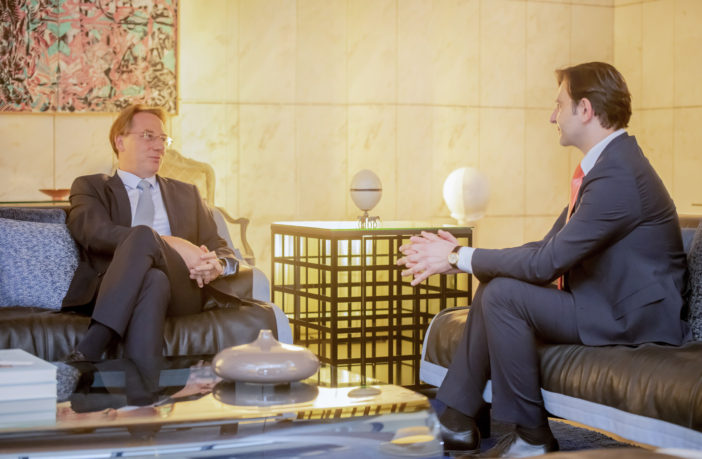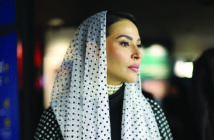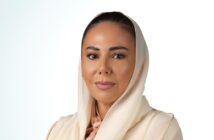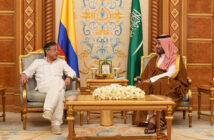Discussion with Ambassador Ludovic Pouille
In 1839, France opened its first consulate in Jeddah. Please discuss constituent factors required for such a robust and strategic partnership as the French-Saudi bonds spanning nearly two centuries.
The French-Saudi relations are deep-rooted in history and trace their origins back to nearly two centuries. The length of such a stable relationship is just one of many illustrations of the shared trust that binds two countries and people. As the French Ambassador in the Kingdom of Saudi Arabia, I always take great pride in mentioning the Treaty of Agreement and Friendship between the French Republic and the Kingdom of Hejaz, Nejd, and other dependencies dating back to 1931. This long-standing friendship, to the best of my belief, is what makes the French-Saudi bonds robust and strategic. All the contacts and bilateral ties were preceded by the foundation of unique cultural understanding and partnership. This friendship is much more than a mere formal bond between two states, for it is spirited and driven by our people. All of the Saudis that I have met since I arrived in the Kingdom have shown their love and interest in France, its culture, and language.
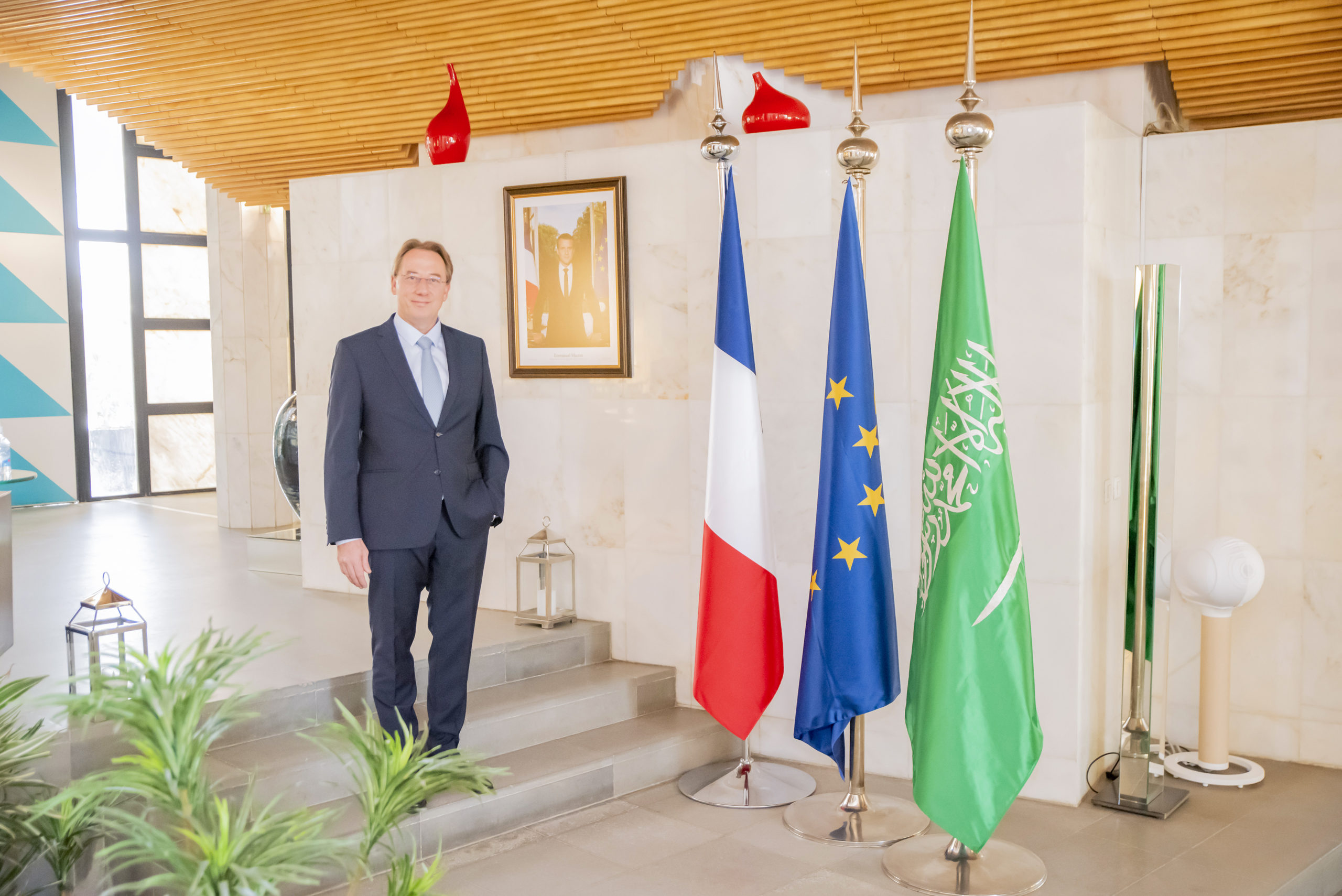
During a recent visit to Saudi Arabia, representatives of the Movement of the Enterprises of France emphasized that Saudi market is promising. What makes Saudi market promising and attractive?
I am amazed by the magnitude of the ongoing transformation in the Kingdom. What is happening in the country is historic. The Saudi Vision 2030 is not only a vision for the future; it is a reality under construction. After five years of its inception, Saudi Vision 2030 has already made great progress. After spending less than a year in the country, I have noticed tremendous changes taking place in many areas in Riyadh and all provinces where I could travel in this short period. The transformations cover areas such as improving quality of life through the development of culture and entertainment, the increased access to homeownership for the Saudi youth, and women’s empowerment through the rapid job creation in many sectors.
In the economic field, the diversification in new and innovative sectors, together with the launching of major projects, will contribute to the welfare of society, create quality jobs, and attract international investment. As a result, Saudi Arabia has already made great progress in various international rankings such as Doing Business and the Global Competitiveness Report, which illustrate the effectiveness of the reforms implemented to make the business environment attractive to entrepreneurship and appealing to international investors.
Saudi Arabia also had an impressive response to the economic crisis in 2020 and took strong measures to mitigate the economic consequences of the pandemic. During the challenging year 2020, the Saudi Government took swift and decisive containment measures to protect human life and limit the spread of the COVID-19. The Saudi Government and the Central Bank injected a substantial amount of liquidity to support the economy and cushion the impact of the pandemic on businesses, particularly SMEs, and on Saudi workers while preserving sustainable public finances. Thanks to its strong economic fundamentals, and its important financial reserves, Saudi Arabia has the capacity to finance the ambitious giga-projects and other major infrastructure projects of Vision 2030. Therefore, prospects are promising, and business opportunities are huge in many areas. France is definitely committed to participate in the thriving economic diversification underway.
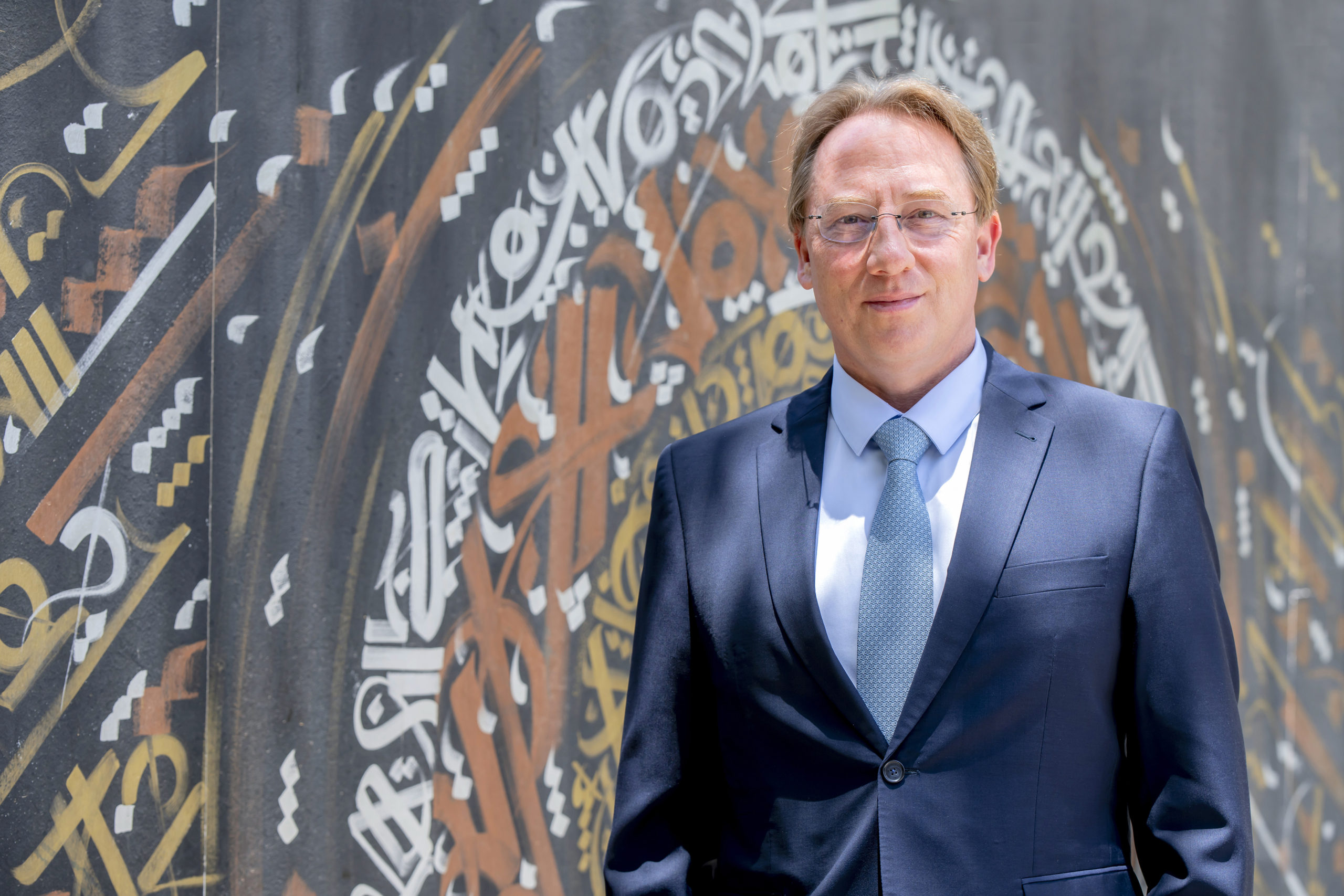
France is one of the largest investors in Saudi Arabia, with direct investments of over $4.37 billion. Which investment sectors are of particular interest to French companies?
Many French corporates have established strong partnerships with Saudi companies and are considered as some of the major foreign investors in the country. These companies are active in renewable energy, water, transport, logistics, and aeronautics. Beyond these infrastructure sectors, France relies on many business leaders and very innovative SMEs and startups to contribute to the development of emerging activities in Saudi Arabia. In addition, France has identified sectors, which represent major opportunities for partnerships between French companies and Saudi counterparts. For example, tourism, sport, entertainment, and culture are areas of great potential.
Healthcare is also a major sector for collaboration, particularly in a post-pandemic context. Moreover, tremendous opportunities are to be explored in the technology and digital sectors, such as cybersecurity, smart cities, innovative mobility solutions, fintech, biotech, aggrotech, to name a few. In all these areas, French companies can provide transfer of technology, training, and development of skills, which are all three high priorities in the Saudi agenda.
In April 2021, the visit of Franck Riester, the French Minister of Commerce and Attractiveness, showed our will to reinforce the economic partnership between France and the Kingdom of Saudi Arabia and explore areas where French companies can contribute to the achievement of Saudi Vision 2030. During his visit, meetings with Saudi government officials and exchange of views with the Saudi business community representatives were very fruitful.
Furthermore, in May 2021, a French business delegation of the Movement of the Enterprises of France (MEDEF International) came to Saudi Arabia to follow up on the French Minister’s visit. This delegation consisted of the CEOs of the leading French companies in their respective sectors: engineering services, private equity investment, banking, industrial gases, electric utility and renewable energy, electric and hydrogen vehicles, and pharmaceuticals. In addition, French Government officials and representatives of MEDEF International were part of the delegation. These visits are strong signals that France is sending to show our interest in investing in Saudi Arabia.
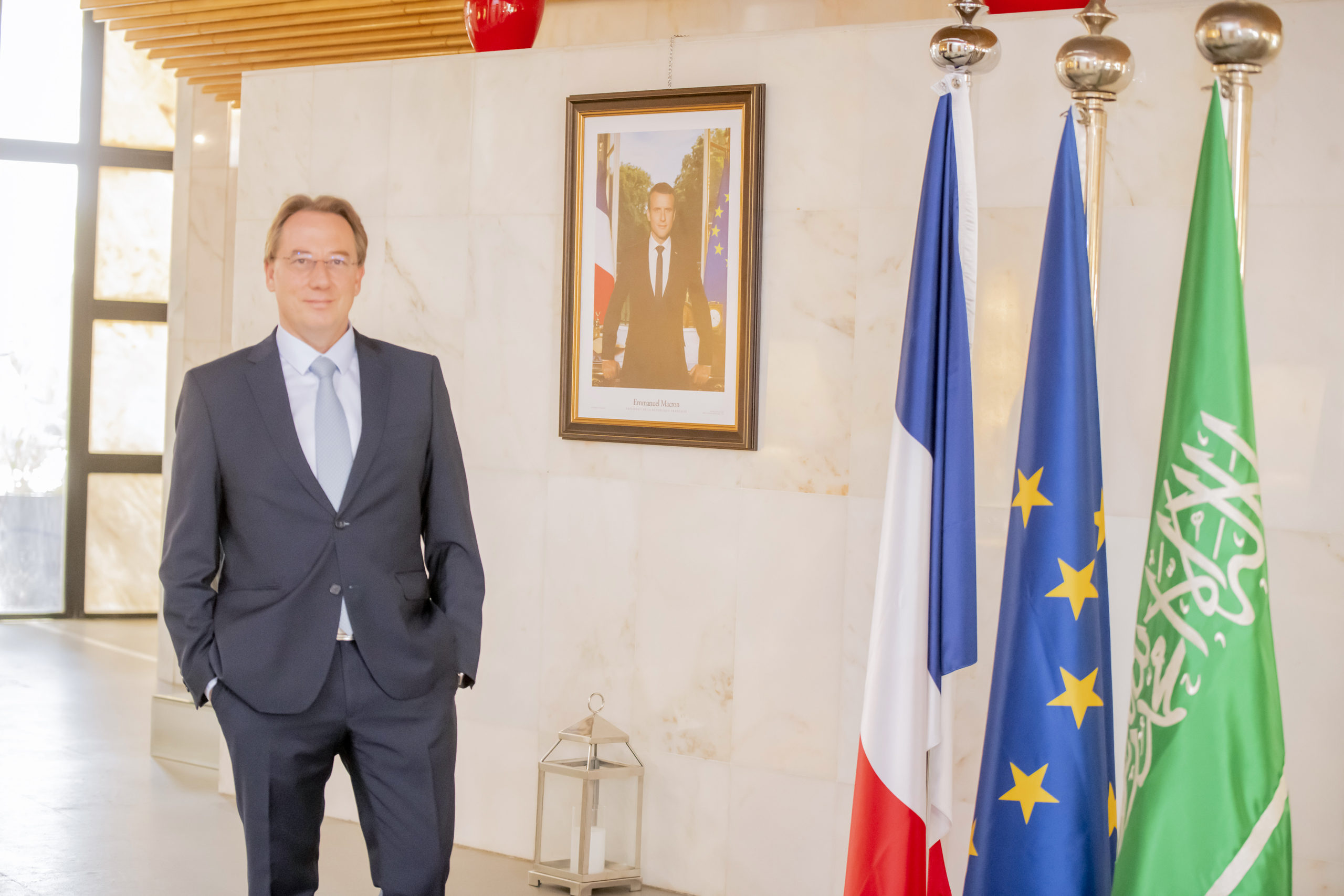
In 2016, the Alliance Française center was established in Saudi Arabia. Please share the vision and mission of Alliance Française in Saudi Arabia and some achievements worth to be discussed.
The Alliance Française network has many objectives, among which are to promote French as a major foreign language and spread the French culture. It is also a cultural center fostering exchanges between Saudi Arabia and France. Four branches operate in the Kingdom: two in Riyadh, one in Jeddah, and one in Al Khobar.
Many Saudis have a keen interest in learning French, and the Alliance Française is responding to growing needs, especially in the academic and professional fields. More than 70% of its students are Saudi nationals. Since its establishment ten years ago, the Alliance Française has welcomed and trained more than 15.000 Saudi students The courses provide French diplomas and certifications jointly directed by the French Ministry of National Education and the French embassy.
Even during the pandemic, the Alliance Française received more than 2.400 registrations for its online courses, which had been developed immediately after the outbreak. In addition, it has proudly delivered 1.000 certification degrees in French during the year. Defense personnel and medical doctors have been actively involved over the years in the Alliance’s classrooms. Nowadays, more and more young Saudis from the region of Al-Ula are enrolling in the courses within the framework of the French-Saudi Al-Ula intergovernmental agreement to promote the region’s heritage through tourism and cultural activities.
Similar to most foreign embassies, the embassy of France is located in the Diplomatic Quarter. What is your vision for the concept of DQ and its impact on multilateral projects of international offices?
The concept of DQ is really interesting, and more importantly, it is convenient. By allocating diplomatic representations and international offices close together, the DQ creates strong incentives fostering cooperation and multilateral work. As a result, two diplomats wanting to have a discussion can meet by walking down the street. Everyone in the French embassy would tell you that I am deeply convinced that the urban plan of the DQ helps us all in engaging discussions with other foreign missions. Most importantly, the presence of Saudi ministries and institutions is almost a game-changer for the diplomatic missions, for it allows quick and effective contacts and dialogue with the local authorities. Lastly, I am also pleased to work alongside European partners and the Delegation of the European Union to the Kingdom of Saudi Arabia!
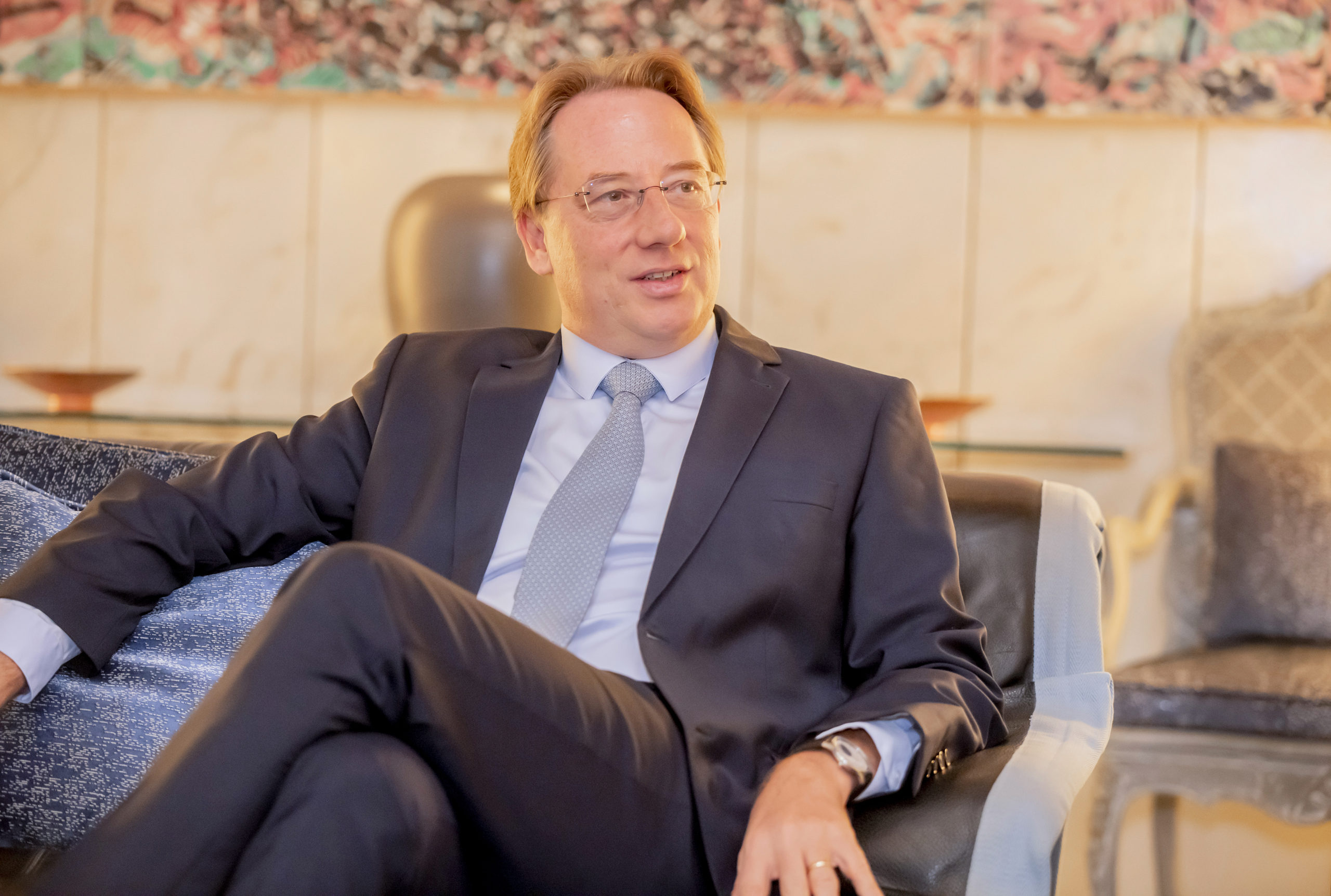
What is the daily routine of the French Ambassador in DQ? Any favorite places?
As I am passionate about current affairs, and since everything evolves so fast in the Kingdom, the first thing I do in the morning is to check the news! Then, I coordinate the day with my team to set up the priorities of the day. After that, I usually have the pleasure of meeting two or three Saudi officials or representatives of French companies. During lunch, I like to meet and talk to Saudi and French partners before returning to the embassy to report back in Paris or attend internal meetings. In addition, I often organize an official diner or a reception at the French Residency. Last but not least, I always try to find time to communicate and address directly to the Saudis through social media.
Since October 2020, when I arrived, I have traveled a lot and fell in love with many places – and quite a few of them are in DQ. However, if I had to pick one, I would choose Al-Ula without a doubt. It is quite difficult for me to put words on the beauty of such a place that makes you speechless. The historical site is unique. It is by far one of the most impressive and magnificent places I have ever visited. I consider myself very lucky to have had the chance to live this wonderful experience. And still, even if it goes without saying, I find great pride in seeing French-Saudi cooperation leading this world heritage site’s development through the agency AFALULA.

